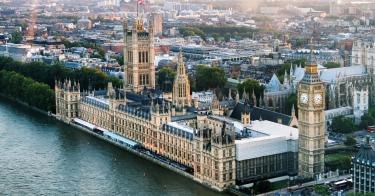In the era of Trump, it would be easy to conclude that the greatest challenge facing conservatism in the United States is its tendency to fratricide. That is a challenge not unknown in Britain. But in the US, the more serious challenges come from shifts in the underlying political and ideological structure of the nation. These challenges, too, have their parallels in the United Kingdom.
That said, conservatives in Britain have something that their American brethren lack: a political party. If conservatism is to achieve successes in Britain, it must do so through the Conservative Party. By the same token, the Party plays an outsized role in defining what being a conservative means in Britain.
Of course there are controversies about this – the Brexit saga springs to mind – but for all their changes, political parties in Britain have a fixity that the American ones lack. Over their long lives, the Democratic and Republican Parties have been both for and against everything.
It’s certainly true that today, the Republican Party is the more conservative of the parties, as the word conservative is commonly understood. This fact is reflected in the rude health of the Republicans at the state level, where the GOP is as dominant today as it was in the 1920s.
But it’s worth bearing in mind that my conservative employer, the Heritage Foundation, was founded in 1973 – not to support Republican President Richard M. Nixon, but to oppose his policies of détente abroad and big government at home. The Republican Party is not the Conservative Party.
Fratricide – or disagreement about policies – is not an aberration on the American right. It is the normal condition of affairs. And though it has its inconveniences, disagreement may be more healthy over the long run than the left’s assumption that the world must end in a state-fed, multiculturalist prison.
The real challenges facing conservatism in the US are structural. First, there is the near-disappearance of the sensible left – or liberals, as we used to call them. Britain experienced this in the 1920s when the Liberal Party collapsed. The US is seeing it now.
Today, the dominant force on the left in the US is European-style leftism, which combines a worship of welfare with an inability to say when the state is big enough, an obsession with race and gender, and a dislike of standards that result in unequal outcomes.
This is a toxic mix. It owes nothing to genuine liberalism, and everything to the rise of the New Left. True, this left also exists in Britain, but in a parliamentary system, the answer on the political level is simple: win a majority, and the left can do little but complain from the sidelines.
In the US, the answer is not simple. The fading of liberalism (and the destruction of the conservative Democrats, known as the Blue Dogs) means that American politics have become more parliamentary in style. But winner-take-all politics sort ill with the separation of powers, which implies, as Reagan knew, that getting 70% of what you want is good enough (for now).
The second challenge to conservatism is that the US system is built on the assumption that, in a republic, Congress is naturally the first branch of government. There is a reason the US Capitol, not the White House, is on the highest ground in Washington, DC. We have no kings, and want none.
Or at least we didn’t. Today, while Congress often complains, it shows no actual desire to take power back from the White House, where decades of ill-considered legislation have delegated it. Indeed, Congress, like the left, finds this administrative state convenient: the left uses it to impose dictates without the trouble of legislation, while Congress uses it to avoid the trouble of actual responsibility.
This situation finds a parallel in Britain, where Remainers purport to be appalled by the idea of ‘Henry VIII’ powers, while being untroubled by the European Communities Act of 1972, which sidelined Parliament to a far greater extent than Henry VIII powers ever could. In the US, the administrative state violates the separation of powers. But in the US, conservatism exists as an independent movement, standing outside both parties, that can take umbrage when the GOP establishment defends that state.
And that is where we are today. The Tea Party sought to remake the Republican Party, but the GOP establishment resisted it with success. So Trump came along, ran against that establishment, and won. But the problem today is not the clash between Trump and the establishment. Such clashes are healthy.
The problem is that, if Congress does not resume its proper place in the system, the US will remain dominated by executive power — an easy instrument for leftism to take up. Even in such an America, conservatism will remain a vital ideological force in the US, and powerful at the state level.
But without sensible liberals to win over or work with, conservatives will find it harder to win sustainable national victories against the administrative left, and popular discontent with the establishment in both parties will continue to grow, fueling more winner-take-all politics.
In short, American politics is becoming more British, with well-sorted and opposed political parties and a powerful executive. The problem is that ours is not a parliamentary system – and if Congress remains derelict in its duties, the new American system is not likely to be conservative.
This piece originally appeared in Bright Blue



